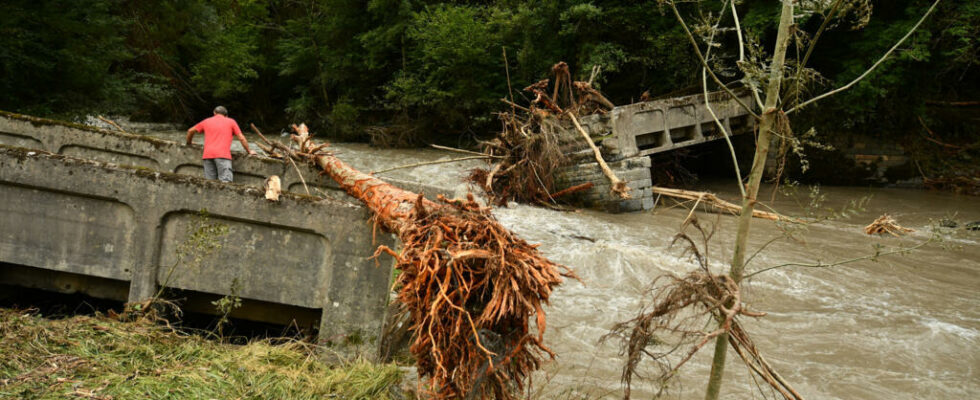Storm Boris is running out of steam and it is time to take stock. While it is difficult to adapt to a weather event of this magnitude, it is possible to prepare naturally for lesser floods. There are effective solutions if the rains remain moderate, such as dikes, dams, water reservoirs and other constructions. But there are also more natural solutions, often underestimated and yet much less expensive. Report from the Hameau de la Bordé, upstream of the Nonette River, north of Paris.
2 min
With every big storm, it was always the same thing. The rain washed away the earth from Olivier Pialat’s fields and the mud invaded the few houses in the Hameau de la Bordé below. The farmer also had damage to deplore in the plantations. We are losing the soil, we are losing the crops that are there, which can be greatly impacted by runoff. In Seine-Maritime, for example, there are fields that have dropped in level, because there has been so much runoff. “, deplores Olivier Pialat.
Different natural solutions
He therefore volunteered to test some simple developments based on natural solutions, with the help of Clara Morvan, technical director of the Nonette water union. Among the solutions to counter the effects of flooding, the inhabitants of the Hameau de la Bordé use the fascine. The fascine is a device of bundles of wood tightly packed. Finally, when you have water with mud that will pass through, it makes a filter. The earth is blocked behind, the farmer can recover it and spread itspecifies Clara Morvan. And then finally, we also have a very significant infiltration. In times of drought, the soil will be able to resist better, because effectively, we have been able to fill these water reserves. “.
Fascines, hedges, and other floodplains in the event of floods… There is a whole range of solutions to retain water and promote its infiltration into the soil. For five years, the hamlet has never been flooded again.
Also readStorm Boris, aggravated by climate change, devastates regions of Central and Eastern Europe
